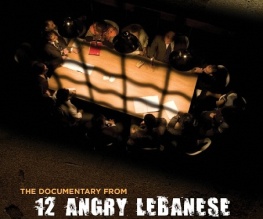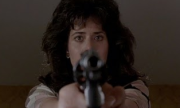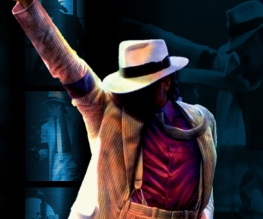12 Angry Lebanese

Has Zeina Dacacche made a feel-good documentary? The director and therapist coached forty-five Lebanese prisoners over a period of fifteen months in preparation to give a performance of the 1950s Reginald Rose play 12 Angry Men before an audience of family and state officials.
Dacacche is executive director of Catharsis, the Lebanese Center for Drama Therapy, and it’s her personal energy and bullet-proof self-confidence which form the lynchpin of its success. Her motley cast affectionately call her ‘abu ali’. Daccache tells the camera ‘abu ali’ is the name given to a terrifying girl – “All my future progeny”, she chuckles, “have been eliminated.”
The original play tells the story of a boy on trial for the murder of his father. All but one of the jurors vote guilty – but through leading a re-examination of the evidence, juror number twelve persuades them to reconsider. Interrupted youth and broken family are themes with which many of the convicts strongly identify.
There is appreciable tension during the first group meeting when Dacacche explains to the cast that without their personal stories, their performance will be meaningless. Youseff, who will eventually be cast as the dissenting juror number twelve, reveals a talent for playful and lyrical narration. Others are introverted and some struggle with literacy. One holds up a sheet of paper on which he has misspelled ‘jackass’. “That’s who I was in my life outside” is all he will be pressed to say. Judgements race through our mind. The men are here for the most violent crimes. Can there ever be a fresh start for somebody who has taken a life or committed rape?
The beautiful aspect of this project is the creativity that emerges brightly from the boredom. The prisoners argue over the fine points of each other’s performances and sit together in pairs, strumming jailbird songs of regret on guitars. In one of the funnier moments in the film, these macho participants choreograph hip hop moves, popping their hips as a group to Michael Jackson’s ‘Scream’: stop pressurin’ me, stop pressurin’ me, make me wanna scream.

But what will happen after the lighting, sound design, makeup and press teams have disbanded? A blank prison, so quickly transformed into a perfect contemporary theatre space, can easily turn back into a hopeless penitentiary. Strikingly, all the participants feel that the project is some kind of watershed and they express moving gratitude whilst voicing understandable anxiety about what will happen to them once the project finishes. One of the inmates uses a word that is given in translation as ‘obscurity’ to describe his fear of life after Dacacche and 12 Angry Lebanese. There really isn’t a better word to describe the predicament which faces these men.
This project has made a small but invaluable difference. What a realistic redemption narrative would look like for these men may be unclear, but Dacacche has succeeded in imparting the most important message. As she says to one of her actors: “you are more important than the show itself.”





Recent Comments